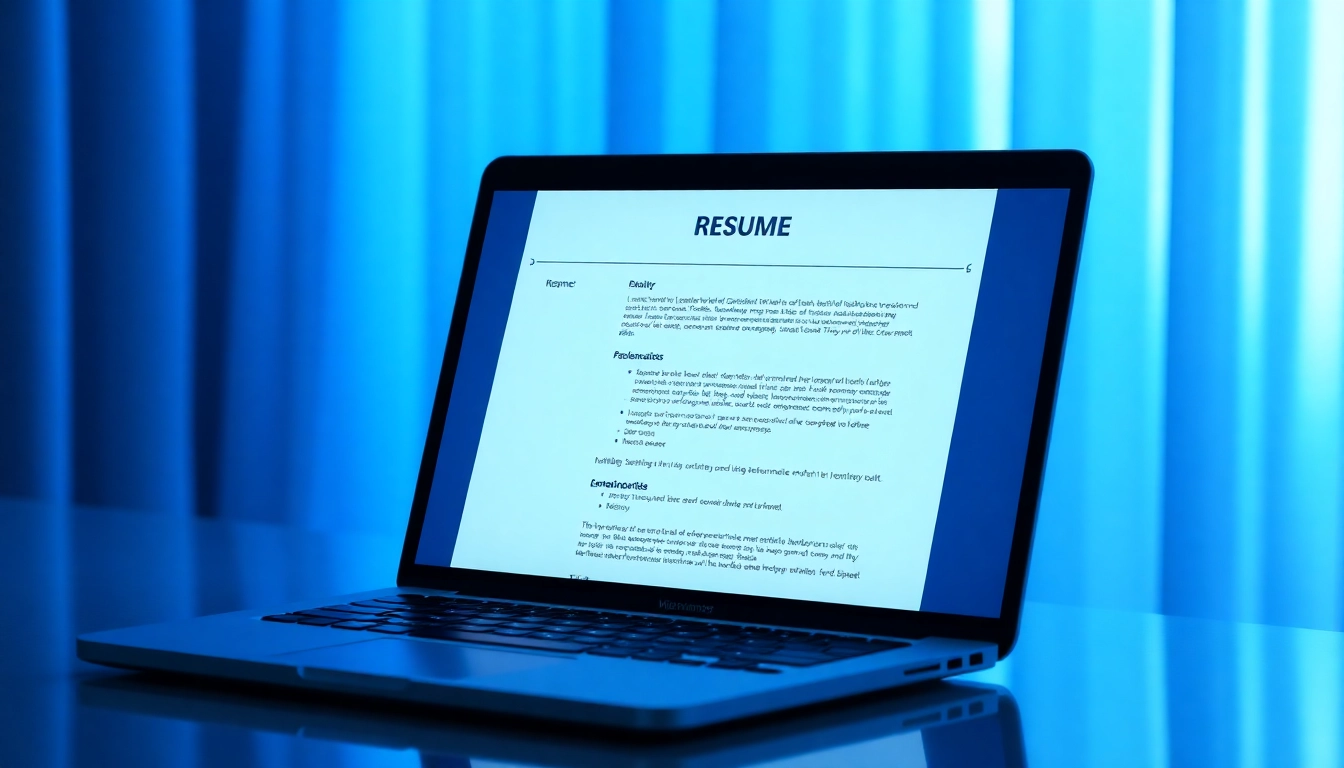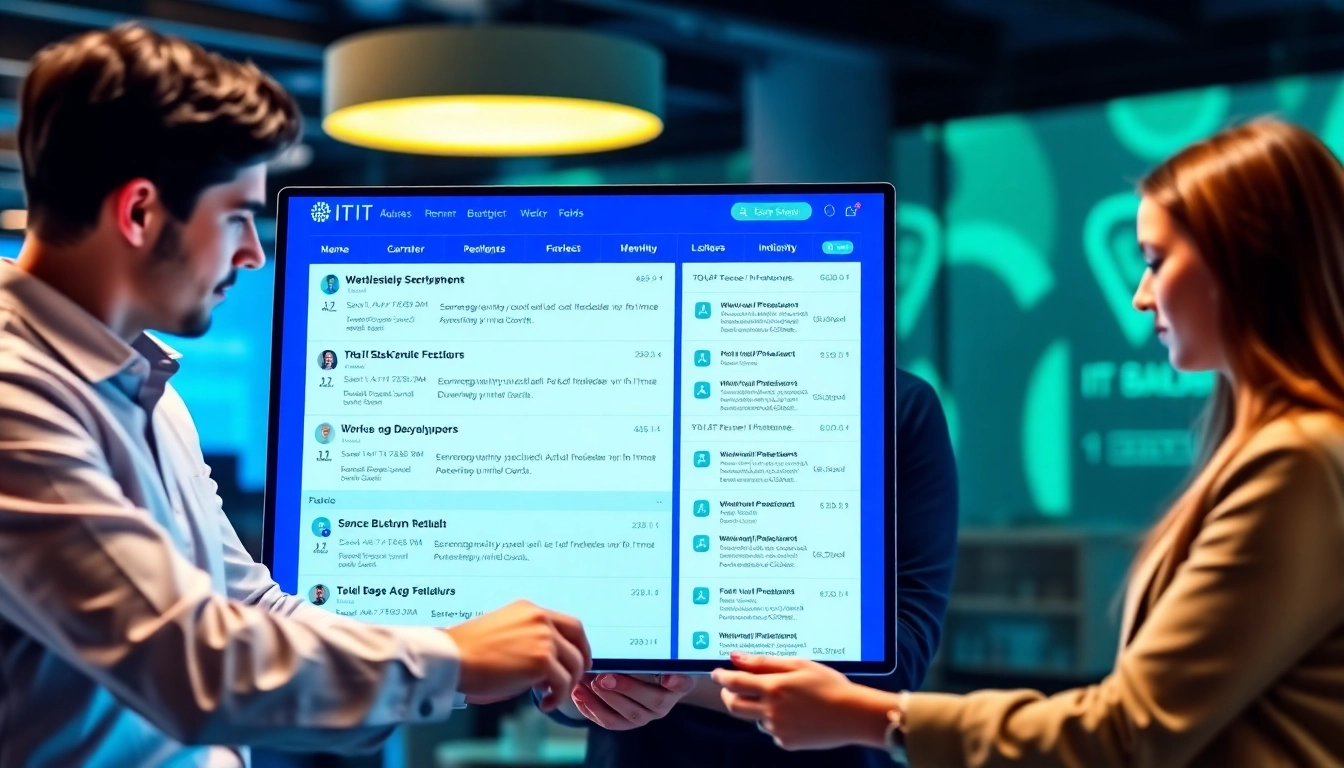Modern Resume Writing in 2025: Strategies for Career Advancement and Market Visibility
In today’s competitive job landscape, crafting an effective resume is more crucial than ever. With the rapid evolution of hiring technologies, social media integration, and industry-specific nuances, job seekers must adapt their approach to ensure their application stands out within mere seconds. According to recent industry insights, recruiters typically spend only about six seconds reviewing each resume, emphasizing the need for clarity, relevance, and strategic presentation. To excel, candidates should leverage advanced techniques such as optimized resume formatting, targeted keyword incorporation, and quantify achievements to demonstrate tangible value. For a comprehensive guide on how to elevate your resume in 2025, explore our resume writing services tailored to current industry standards and employer expectations.
Understanding the Evolving Landscape of Resume and CV in 2025
What Makes a Resume Effective Today?
An impactful resume transcends basic job descriptions by emphasizing achievements, results, and industry-specific keywords. In 2025, resumes must be tailored to each role, highlighting relevant skills, technologies, and accomplishments with quantifiable metrics—like increasing sales by 25% or boosting efficiency by 30%. Using a professional template designed for ATS (Applicant Tracking Systems) ensures compatibility with automated screening tools, which are now a standard gatekeeper in many recruitment processes.
Differences Between Resume and CV in 2025
The traditional resume is a concise, tailored document summarizing professional experience, education, and relevant skills, ideally restricted to two pages for clarity. Conversely, a CV (Curriculum Vitae) remains a comprehensive, unaltered record of academic achievements, publications, and conferences, often extending beyond two pages, especially for senior or academic roles. In 2025, it is vital to understand which document aligns with your target industry—tech, engineering, and corporate sectors favor succinct resumes, while academia, scientific research, and senior executive roles may require detailed CVs infused with keywords and achievements.
Common Pitfalls in Resume Writing and How to Avoid Them
Many candidates inadvertently sabotage their chances by glossing over critical areas or making errors that diminish their professional appeal. Frequent mistakes include lengthy, unfocused content, generic language, unquantified achievements, and neglecting keyword optimization. Failing to tailor resumes to individual job descriptions reduces relevance. Additionally, typographical errors, inconsistent formatting, and using outdated job titles can impede ATS recognition. To avoid these pitfalls, employ professional resume review services, utilize industry-leading templates, and ensure your resume presents a cohesive, polished narrative supported by data.
Strategic Enhancements for 2025: Leveraging Data and Industry Insights
Optimizing for ATS and Industry-Specific Keywords
Modern recruiters rely heavily on ATS to filter applications before human review. Incorporating keywords from job descriptions, such as technological skills, certifications, or domain-specific terminology, enhances the likelihood of passing initial screenings. Analyze job postings to extract relevant keywords—using tools like jobscan.io—and seamlessly integrate them into your professional summary, skills section, and work experience descriptions.
Quantifying Achievements for Impact
Employers value measurable results, making quantification essential. Instead of vague statements like “improved sales,” specify “increased sales revenue by 35% within six months.” Use percentages, dollar amounts, or specific metrics to craft compelling narratives that demonstrate your contribution and potential ROI to employers.
Integrating Industry-Specific Language and Certifications
Use terminology aligned with your profession—such as “cloud migration,” “cybersecurity protocols,” or “Agile methodologies”—to demonstrate expertise. Highlight relevant certifications like PMP, AWS Certified Solutions Architect, or CISSP, ensuring they are prominently displayed. These elements not only catch ATS but also resonate with recruiters seeking specialized knowledge.
Step-by-Step to Craft Your Winning Resume in 2025
Select the Optimal Format and Layout
Begin with a clean, modern design that allows easy scanning. Choose formats—chronological, functional, or hybrid—that best showcase your experience. For early-career professionals, a one-page chronological resume emphasizing skills and education suffices. Mid-to-senior level candidates should consider a two-page hybrid format balancing achievements and job history.
Write a Power-Packed Personal Summary and Work Descriptions
Your personal summary should constitute 3-4 lines emphasizing core competencies, achievements, and career goals, infused with keywords. For work experience, craft bullet points beginning with action verbs—like “Led,” “Developed,” or “Optimized”—followed by outcomes supported by data. Be concise but comprehensive, restricting each point to one or two lines.
Add Education, Certifications, and Volunteer Activities Effectively
Place your education either at the top or bottom of your resume based on relevance. Highlight relevant coursework, honors, and certifications—especially those aligned with the job. Volunteer experiences demonstrating leadership, teamwork, or social responsibility can differentiate your profile and should be included in a dedicated section or integrated within experience details.
Harnessing Technology and Tools to Elevate Your Resume
Use AI-Powered Resume Builders and Review Platforms
Leverage AI-driven tools like ResumeGenius or MyPerfectResume® to generate ATS-friendly templates and optimize content. These tools analyze your inputs, suggest improvements, and help tailor resumes for various roles, saving time and ensuring industry relevance.
Customize Resumes for Different Applications
Each role demands different emphasis on skills or experiences. Maintain multiple versions of your resume, tweaking keywords and achievements to match individual postings. This approach maximizes relevance and boosts interview chances.
Regularly Review and Update Your Resume
Stay current with industry trends and technological shifts by revising your resume quarterly. Add recent projects, certifications, or skills acquired. An up-to-date resume signals active engagement and professional growth to employers.
Enhancing Your Online Presence and Job Portal Profiles in 2025
Create and Perfect LinkedIn and Social Media Profiles
Optimize your LinkedIn profile with a professional photo, compelling headline, and keyword-rich summary. Fill in experience, skills, endorsements, and recommendations. Tailor your Twitter and industry-specific profiles to mirror your resume, sharing insights and achievements to attract recruiters.
Manage Online Reputation and Personal Branding
Regularly audit your digital footprint—removing unprofessional content—and build a positive narrative through thought leadership. Engage actively in industry discussions, publish articles, and connect with peers to command your digital presence.
Timing and Strategies for Contacting Recruiters
Research optimal contact times, typically mornings or early afternoons on weekdays. Use personalized messages referencing the role and how your skills align. Follow up professionally after interviews, reinforcing your enthusiasm and fit.

